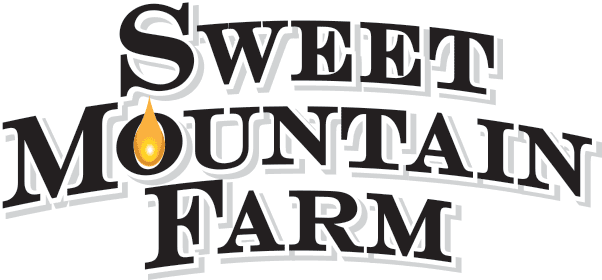Question from East Central Wisconsin Beekeepers Association:
Q: The club members, me included, have a lot of trouble getting our hives through winter. Last year was a disaster for most; this year with slightly warmer temperatures the members seem to be doing better. Do you have any specific recommendations to maximize survival which you could pass on?
A: Look first at how the industry currently operates. Northern beekeepers purchase less expensive packages that are trucked from the South and California because new Beekeepers wish to get a head start on the season. It’s not a significant head start unless the beekeeper already has drawn comb from previous years. The quickest start is nucleus colonies. Package bees are generally produced at large commercial operations that spray the bees, understandably so, with a chemical application which is often necessary for the bees to cross state lines. The South has the highest incidence of pests and disease. Honey is typically extracted in the fall before winter so the beekeeper chooses to artificially feed the bees rather than extract the surplus in the spring. Re-queening and splitting colonies is usually accomplished in the spring rather than the fall that would benefit the bees by breaking the brood cycle when Varroa’s population is the greatest. On top of that, a new Beekeeper sometimes applies more chemicals in the hive which further weakens the bees.
These methods may work in the short-term, but over the long haul the bees increasingly become weaker. It’s my guess that the breeding industry is not doing all it can to optimize selective breeding practices. More stringent methods must be used when grafting from colonies. The result is a cycle that perpetuates weak bees. Also, the economic incentive is not present to raise the strongest bee when the demand is great. The incentive is to provide the least expensive, earliest bees that produce the most honey. Since bees will be purchased year-after-year to support the industry, there is no consequence for breeding weak bees. It makes sense that Northern beekeepers must optimize their stock by purchasing local stock whenever possible or breed their own locally grown stock.
What does Sweet Mountain Farm do differently? We breed Russian bees that are selected for mite resistance, cold hardiness, over-wintering success and hygienic behavior. We re-queen in the fall, pull honey in the spring, and do not artificially feed unless the colony is in its first year. If a hive dies, its ok since our practices do not allow us to pamper weak hives, nor do we graft from them. We strive to breed the strongest stock possible. Since the winter cluster size is smaller we use smaller 8 frame medium equipment, the configuration is completely interchangeable in the field. The cedar material has the highest R-value of local tree species and is lighter weight weighing in at 40lbs. The farm provides every colony with screened bottom boards and top ventilation so that moisture does not build up in the hives. In colonies that are not raised for drones, a plastic drone frame (6.125 mm cell) is used and drones are eliminated from the colony to reduce potential mites. Not only does this minimize Varroa but it preserves the resources for the workers. Overwintering is in 3 medium supers (12 full frames of honey/pollen remain on the hive). Russian colonies in the North do not need to be treated. Incoming colonies are segregated from the regular yard until the colonies are pest free.
Sweet Mountain Farm has never treated our hives. When Certified Russian nucleus colonies arrive, they are placed in a satellite bee yard. The colonies are checked for Varroa, if infected, Varroa is monitored to fewer than 4 mites per 100 by removing the queen for 10 days and performing a powder sugar roll. Of the 77 colonies that SMF has purchased or sold over the last 4 seasons there were 10 combined winter losses from 2010-2013 which is consider normal losses. Last winter was not normal. Washington Island experienced the coldest winter in 70 years. We lost 29 hives in January, 2014 when -45 degree wind chills were sustained. More effective wind blocks could have been installed. I am convinced that successful beekeeping in the North is all about management skills and not about chemicals. It’s about having the right mix of bees, equipment and attentive management style.
Check out the East Central Beekeepers Association Bee Blog at https://ourbeeblog.blogspot.com/ March meeting
WHEN: Saturday, March 21st, 2015 at 9:30 AM
WHERE: Fond du Lac Public Library
Eugene McLane Room (downstairs)
32 Sheboygan St.
Fond du Lac, Wi.
If you are interested I will be in Milton, Wisconsin at the Milton Middle School this coming Saturday. Sweet Mountain Farm will present to the Wisconsin Honey Producers Southern District on Saturday, March 7, 2015. Check out our Facebook page for the announcement, https://www.facebook.com/SweetMountainFarmLLC and while you are there, if you see what you like please like us.
Thanks for your question
Sweet Mountain Farm, LLC
Sue A. Dompke
info@sweetmountainfarm.com
